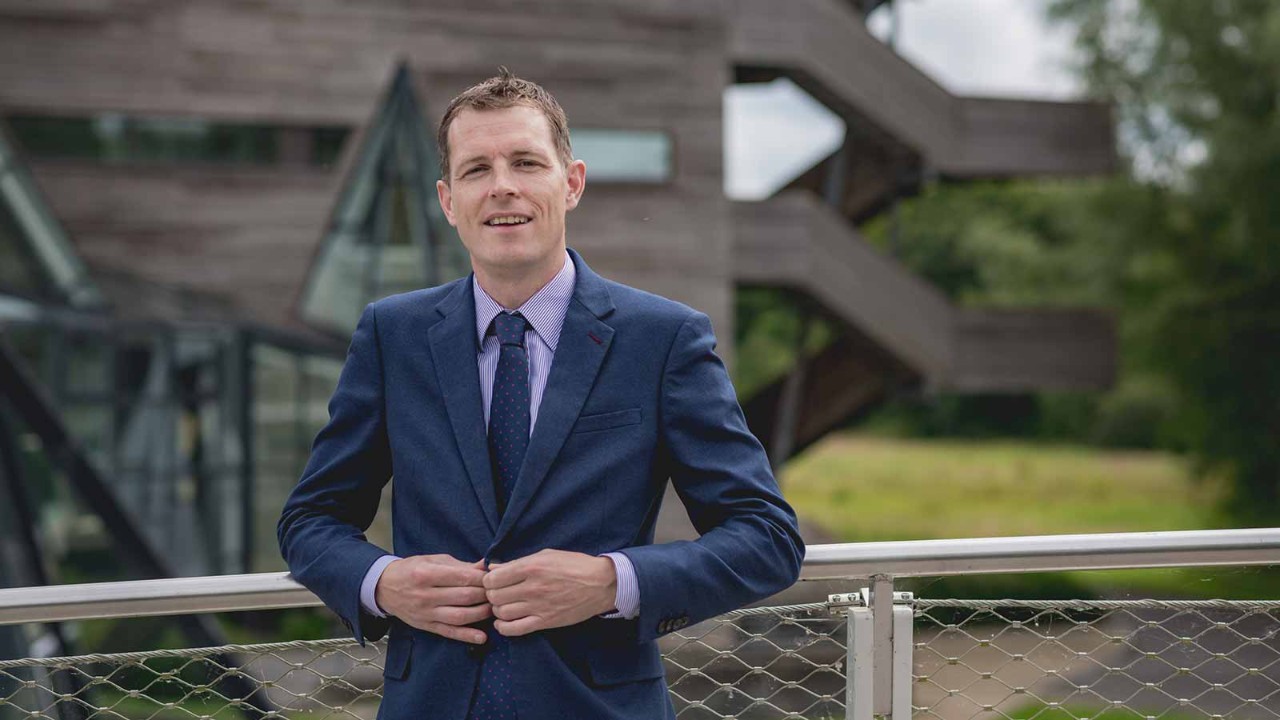
In modern business life, and on networking websites like LinkedIn in particular, superlatives frequently abound as the career journeys and personal credentials of professionals are set out. It’s taken as a given that, when the moment arises, your CV should shine the brightest light on your achievements.
It’s striking, then, that the new chair of ACCA Ireland, Philip Maher FCCA, having enjoyed a highly successful career in corporate finance, restructuring and insolvency, uses his LinkedIn profile for a notably different purpose, opening with the statement: ‘I love to give back, to act as a mentor and to influence the next generation’.
‘The changes that are required to transition to a decarbonised economy are immense and require leadership from all of us as individuals’
CV
2021
Chair of ACCA Ireland
2017
Chair of ACCA Munster panel
2017
Director, Mazars Corporate Finance
2008
Joins Deloitte Corporate Advisory
2005
Becomes member of ACCA
It’s also clear from talking to him that, as Ireland sets out on the road to post-pandemic recovery, Maher is keen to ensure that the ACCA values he cherishes – community engagement, acting with integrity and a commitment to sustainability – are to the fore during his time in office.
Virtual upsides
Ireland was just coming out of stage five restrictions when Maher took up the position of ACCA Ireland chair in April. As a result, as Maher explains, ‘I knew we couldn’t have face-to-face events for the foreseeable future and so we worked together with our panel members to accommodate our members’ interests.
‘There are actually some upsides. When travel is out of the picture, you can get a lot of work done behind the scenes and throw yourself into the agenda you’ve set out.’
One upside was the huge uptick in attendance figures at ACCA virtual events. ‘It was fantastic to see member participation rates so high,’ he reflects. ‘Pre-pandemic, for events in Limerick and Munster, an attendance of around 40 would have been considered good; online, that figure is now often around 500. We can also invite international, high-profile speakers much more easily.’
Maher adds, that ‘local events will always retain their value in smaller, tightly focused events that meet the needs of a particular set of members. However, virtual events allow us to hear a range of viewpoints, and learn and connect with our global colleagues.’
Take three themes
Given his philosophy of giving back, Maher’s interest in sustainable finance will be no surprise and it forms one of three key themes for his year in office. The difficulties the pandemic has created for social contact and the challenges for the economy set the backdrop for the remaining two: the power of connection and attracting the next generation to the profession.
‘I have been passionate about sustainable finance for a number of years and, as chair, I want to support the development of member skills and knowledge around it,’ Maher says. ‘The changes that are required to transition to a decarbonised economy are immense and require leadership from all of us as individuals.
‘Through ACCA, we have the opportunity to empower members, to teach, learn and upskill for the challenges ahead. For example, we’ve created sustainability champions among our panel members, who have been instrumental in promoting our sustainability message.’
‘ACCA has a superb community of likeminded individuals and the power of connection is about harnessing that’

Reaching out
As chair, Maher has ‘made it my business to attend ACCA panel meetings on a regular basis and to reach out to the majority, if not all, of new members in Ireland.’ He stresses, however, that the power of connection isn’t just about increasing social interaction but reminding ourselves that ‘our ability to help, influence and mentor’ is needed now more than ever.
‘ACCA has a superb community of likeminded individuals and the power of connection is about harnessing that,’ he says.
The third theme builds on Maher’s commitment to ACCA’s schools initiative. In highlighting the appeal of the accountancy profession to the next generation, he is particularly committed to working in disadvantaged areas where ACCA’s ability to break down barriers to access can have a particular resonance with students looking to build a professional career.
As to why ACCA has attracted his own ever-deepening commitment over the years, Maher reflects that ‘when you start to give back, you tend to begin locally and with like-minded friends. In my case, that was through ACCA, where the network I had built up was a powerful one.’
While it is about driving change, he believes ‘there also has to be some enjoyment in it. To my mind, it’s the personal benefits that accrue, when you make friends and meet people who inspire you on a national and international stage, that drive you on.’
Time of reckoning
While there is much to look forward to in pursuing this agenda, Maher is deeply aware that the fuller reopening of society will also be a time of reckoning for many in the business community.
‘The supports in place from government were very welcome but also serve to mask the true picture of where some SME businesses are,’ he says. ‘Many are doing very well, of course, and in my own work I have clients who are in that space. You can see the buoyancy of the stock markets as a barometer of that.
But there is, he continues, ‘definitely another other side of the coin. I have clients in retail and hospitality who have effectively been through hell over the last 500 days or so. We can see light at the end of the tunnel but there are even more challenges ahead.’
While it has proceeded with relatively little fanfare to date, Maher is impressed by the ambition of the Companies (Rescue Process for Small and Micro Companies) Bill 2021, which was passed by the Oireachtas in July and has enabled the Small Company Administrative Rescue Process, mirroring key components of the existing examinership process.
If its goal of providing a cost-efficient and effective alternative to examinership is achieved, it will be of great benefit to many smaller companies in difficulty, Maher says. Against that, he believes much of its success will hinge on the approach Revenue takes to issues such as excludable income and deferred payments. He notes that the personal insolvency legislation, introduced in 2012, ‘required a number of subsequent amendments before it became truly effective’.
Looking at the bigger picture of recovery, Maher sees prospects as positive but cautions that the issue of the two-speed economy won’t be resolved quickly.
‘A lot of the key indicators are good,’ he says. ‘Interest rates are not going to move for some time and the issues around corporate tax rates are of limited concern at the moment.
‘Undoubtedly, some sectors are going to fly, but others will continue to struggle as government support schemes for business come to an end, restrictions remain on travel and hospitality, and the future of the office is uncertain.’
‘I’m passionate about getting the message out, through my year in office, that every ACCA member can make a difference’
Pandemic challenges
Originally from Dublin and now living in Limerick, where he is director of Mazars Corporate Finance, Maher counts himself among the more fortunate in terms of living through the pandemic.
‘There were certainly some difficulties for our family like everyone. The schools closing in January was doubly challenging because my wife is a teacher. But we both worked remotely and recognised we were far better off than many.’
As Zoom calls replaced traditional meetings and face-to-face interaction, Maher did, however, find a fresh test for the soft skills he has developed through his work in restructuring and recovery. ‘You sometimes have to have difficult conversations virtually and that can be challenging,’ he says. ‘When you are delivering bad news, you have to be more sensitive about how you are delivering it and take more time with your client.’
Warning shot
If the pandemic has highlighted human fragility, Maher is of the opinion that it is just a warning shot for things to come. He points to ACCA’s 24th International Assembly in 2020 when guest speaker Peter Bakker, president of the World Business Council for Sustainable Development and the man who coined the phrase ‘accountants will save the world’, argued that the pandemic was nothing compared to the crisis that we are facing with climate change.
‘It was a stand-out moment for me and it made me revaluate my own priorities with regard to climate change and biodiversity,’ he recalls. ‘The reality is we all now have to challenge ourselves and change.
‘Accountants have a massive role to play in that, helping companies to identify the risks and the opportunities for their business and providing the financial analysis that will drive real change. I’m passionate about getting the message out, through my year in office, that every ACCA member can make a difference.’





